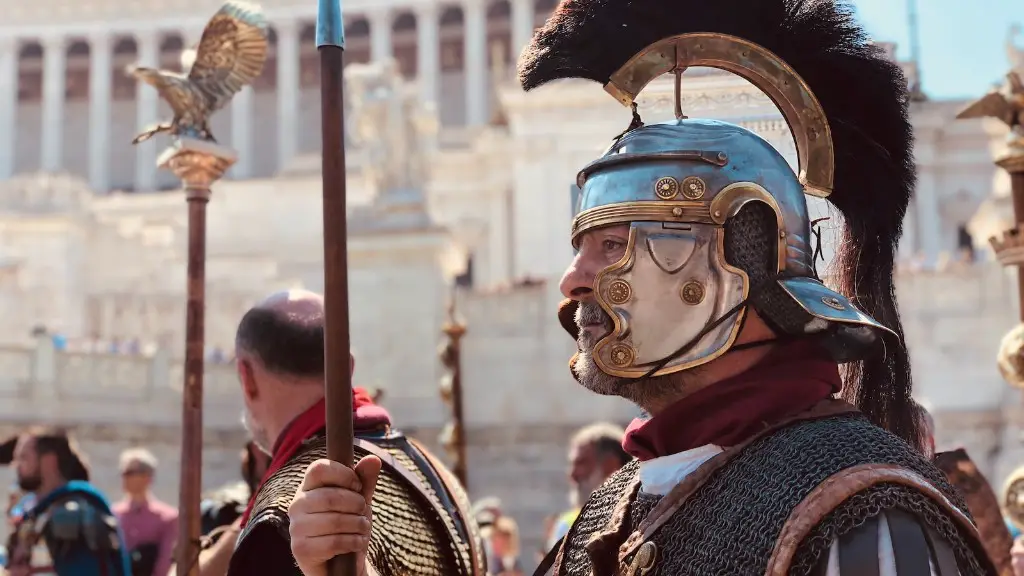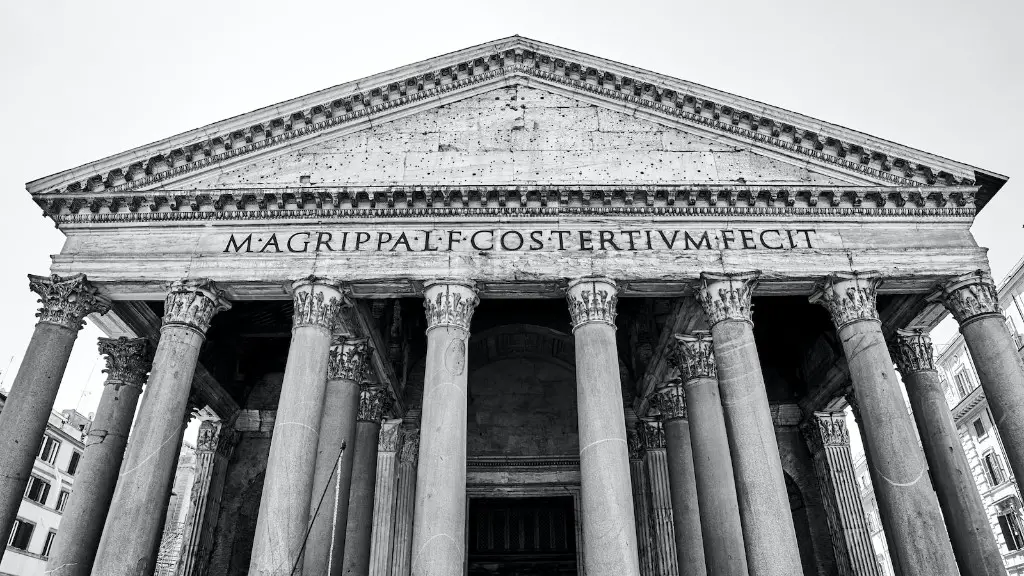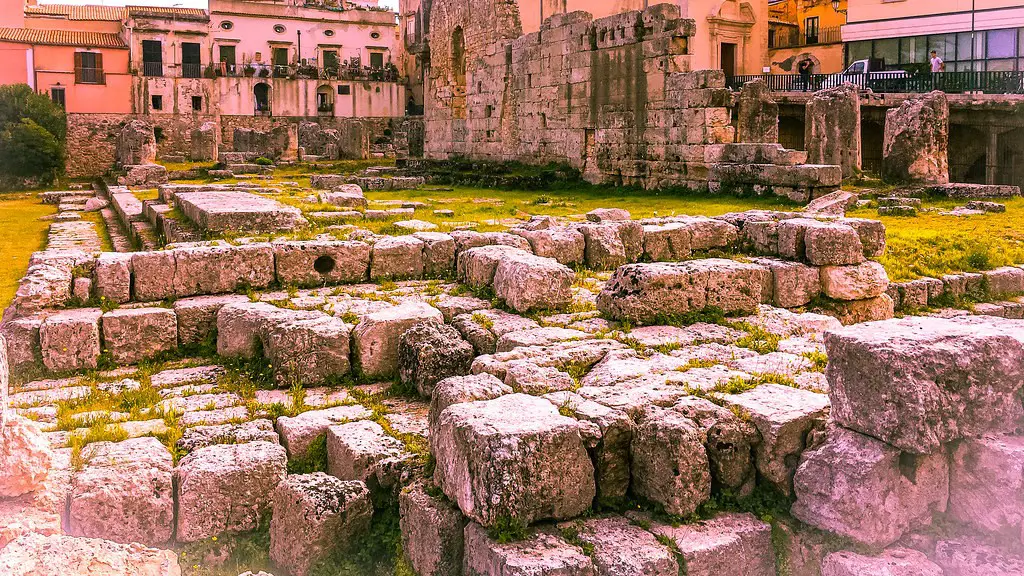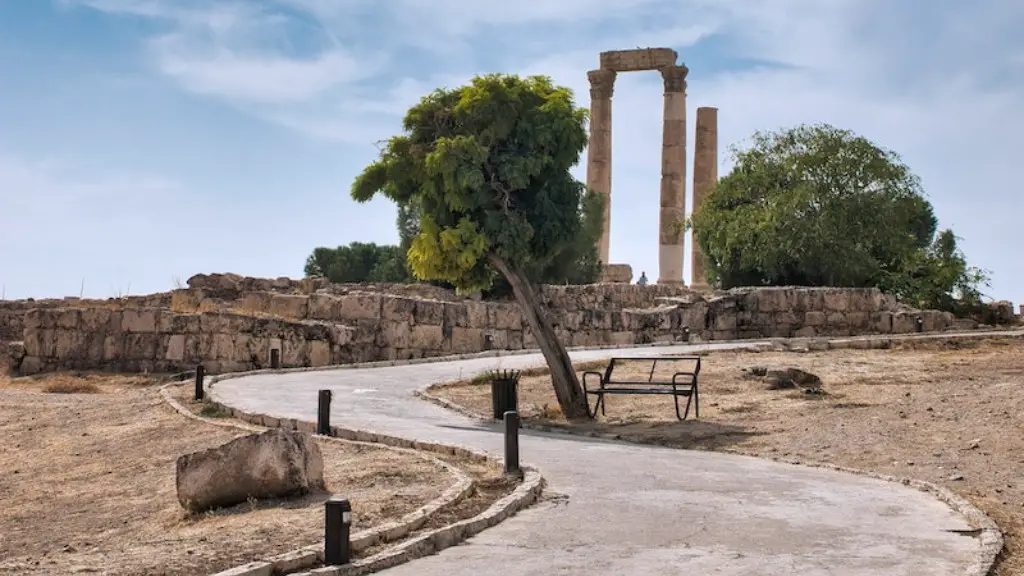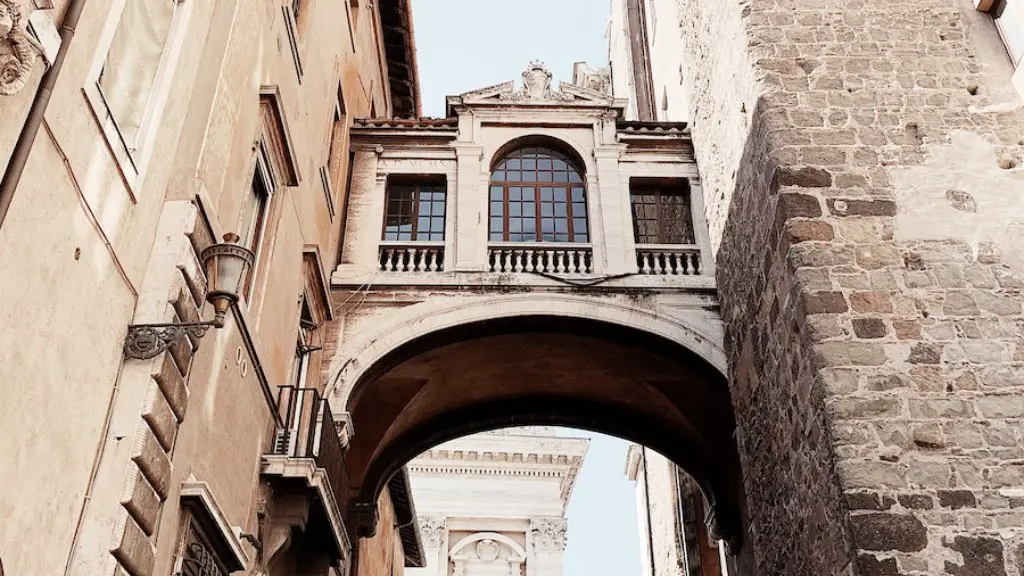Who Are The Latins Of Ancient Rome
The Latins of ancient Rome were a diverse people who made up the core of the population of the city of Rome. They were mainly of Italic origin and spoke the Latin language, and were closely related to the Etruscans, Samnites, and other Italic peoples.
The Latins did not have a unified political identity but were divided into smaller communities with different customs and traditions. They were united by a shared language, law, and religion. The Latins were known for their hardy and industrious nature, valuing labor and striving for excellence.
The Latins were also famous for their religious dedication to the gods of Rome. They were responsible for creating many of the religious ceremonies and customs that were adopted into the Roman religion and practiced by the citizens of Rome. Every year the Latins would perform sacrifices to the gods in the Temple of Jupiter. They would also perform rituals to honor their patron god, Jupiter, and the other gods of Rome.
The Latins were also well-known for their military prowess. They were responsible for the defeat of the Etruscans and their subsequent inclusion into the Roman Republic. Over the course of the centuries, the Latins gained control of the Italian peninsula, and were eventually incorporated into the Roman Empire. When the Roman Empire fell, the Latins were one of the few peoples who maintained their independence and created their own kingdoms and empires.
The legacy of the Latins is still reflected today in the culture, architecture, and language of many European countries. The Latin language is still spoken in many parts of the world and its influence can be seen in many languages including Spanish, French, and Italian. It is also the root of many English words, such as “civitas”, “ianuae”, and “homo”. The influence of the Latins is felt even in the United States, whose Constitution and government are based on the Roman Republic.
Roman Culture
The Latin people of ancient Rome had a culture that was shaped by their religion, language, and militaristic lifestyle. They believed in the gods of Rome, and followed strict moral codes. In addition to worshiping the gods, the Latins created elaborate rituals for the passage of individuals into adulthood, the formation of political groups, and other important events in the life of the community.
The Latins were also renowned for their artistic and architectural achievements. They had a reputable tradition in sculpture, and their artworks were highly decorative. The Latins also had a unique building style, with many monuments and structures built from stone and marble. Some of the most impressive structures still standing today, like the Colosseum, were built by the Latins.
The Latins developed a literature rich in myth and history, and the works of aristocrats such as Virgil and Ovid are still studied and discussed today. This literature contained vivid descriptions of tales and events, and explored the ideals of bravery, honor, and citizenship that were important lessons to the Roman people.
The Latins also emphasized the value of education, and had extensive learning institutions. They believed that knowledge was power, and encouraged their children to gain a comprehensive understanding of many different fields, such as politics, philosophy, and science.
The Latins had a strong sense of justice, and developed an extensive legal system that was used to settle disputes between citizens, and punish those who committed crimes against the community. This system was later adopted by the Roman statesmen and incorporated into their laws.
Religion And Mythology
The cultural identity of the Latins was closely linked to their religion and myths. They worshiped the gods of Roman religion, which included countless gods and goddesses, spirits, and other divine beings. Roman mythology also contained many inspiring tales and stories about the gods, which were told and retold through generations.
In addition to honoring their gods, the Latins also celebrated festivals to pay homage to their ancestors and to give thanks for the abundant crops and plentiful harvests. These festivals were often accompanied by colorful rituals, parades, and theatrical performances.
The Latins also practiced shamanistic rituals and ancestor worship. They believed that their ancestors could use their supernatural powers to protect them and provide guidance. These beliefs were so pervasive that they became an integral part of the culture and beliefs of the Roman people.
The Roman gods and goddesses were also held in high regard, and were the subjects of worship. This was particularly true of the major gods such as Jupiter, Juno, and Minerva, who were seen as the leaders and protectors of the people.
Legacy And Influence
The legacy of the Latins is still felt throughout the world today. Their language and mythology were passed on to many of the countries in Europe, and their culture, art, and literature have a great deal of influence on contemporary Western civilization.
The Latins are also remembered for their contribution to the world of literature and philosophy. They wrote works by philosophers such as Cicero and Seneca that still impact the way that people think today and explore the boundaries of knowledge.
Likewise, they are remembered for their contribution to the legal systems of Europe and the Americas. Roman law had a strong influence in shaping the justice systems of many countries, and the legislation of the Roman Republic and Empire is still studied to this day.
The Latins also left behind important monuments and architecture, such as the Colosseum, their aqueducts and bridges, and their temples — all of which are still admired to this day.
Conquest And Expansion
The Latins were an ambitious people with a strong desire to expand their influence. This led to their conquest of other peoples in Italy and the Mediterranean, as well as their expansion into Europe, Asia Minor, and Northern Africa.
This expansion spread the influence of the Latins far and wide, and it is seen in their influence on the cultures and languages of many of these regions, as well as the monuments and structures that still stand as a testament to their legacy.
Throughout their conquests, the Latins assimilated other cultures and beliefs into their own. They embraced the customs, language, and art of the peoples that they conquered, giving them a unique blend of culture and blend of beliefs.
The Latins were also in constant conflict with their rivals, particularly the Greeks, who were their rivals for control of the Mediterranean. This rivalry sparked the wars between Rome and Carthage, as well as the wars between Rome and Greece.
The Latins were also associated with pirates and raiders who used their ships to plunder coastal settlements. The most infamous of these was the pirate Lucius Cornelius Sulla, whose raids of Spanish and Italian ports made him a legendary figure.
Decline And Fall
The Latins’ extensive integration of other cultures and beliefs eventually weakened their position and contributed to their decline. They slowly lost their independence and eventually became absorbed into the Roman Empire.
The Roman Empire, while powerful, was plagued with internal problems such as corruption, economic instability, and political unrest. This led to its eventual downfall and the spread of the Dark Ages in Europe.
The Latins also struggled with the barbarian invasions of the 5th century. These invasions weakened the strength and independence of the Latins, making them much less powerful than before.
The decline of the Latins was also accelerated by the spread of Christianity, which replaced the old Roman religion. This led to the decline of many of the religious ceremonies and customs of the Latins, as well as their language and literature.
The decline of the Latins did not mean the end of their influence. Their language and culture continued to shape the development of Europe and America, while their monuments and structures still stand as monuments to their power and influence.
Conclusion
The Latins of ancient Rome are remembered as an ambitious people with a strong sense of unity and cultural identity. They developed a language and culture that was adopted into the Roman Empire, and their legacy still lives on in the culture and languages of many countries today.
The Latins are also remembered for their devotion to the gods of Rome, their artistic achievements, their literature, and their advancement of education and justice. Their militarily prowess and conquests spread the influence of their culture far and wide, and their monuments still stand as a reminder of their great power and achievements.
